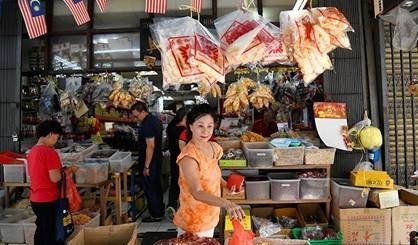
PETALING JAYA: About 55% of the companies supplying goods and services to companies deemed to be essential during the lockdown have had their applications to operate denied by the international trade and industry ministry (Miti), says a business group.
In a statement today, Small and Medium Enterprises Association (Samenta) also said 11% of businesses under the essential list who have applied for approvals from Miti are still waiting for a response.
The statistics were derived from a survey Samenta conducted this month of 350 SME businesses to present the “real situation” companies are facing during the lockdown and to offer recommendations for policymakers to take into consideration.
Under the current movement control order which began on June 1, all companies have to obtain approval from Miti before operating.
“The vetting process (for Miti approvals) has to be expedited as revenue in May and June has been impacted further,” said Samenta honorary secretary-general Yeoh Seng Hooi.
“There should be more approvals for the first tier of suppliers that are supporting those in the essential list,” he said, adding that the 55% rejection rate was “alarming”.
The companies surveyed said they expect to lose anywhere from RM100,000 to RM2 million as a result of not being allowed to operate during the current lockdown.
Another key finding of the survey is that 56% of companies are expecting their business to recover in mid-2022 and 12% in 2023.
Yeoh said the economic pessimism among SMEs was evident as only 22% of respondents said they expect a recovery in the fourth quarter of 2021 compared with 61% based on an earlier survey in January.
In terms of financial sustainability, 31% of the respondents said they have cash reserves of less than a month while 35% have enough to last two to three months.
In addition, 23% of those in this month’s survey expect to lay off employees – compared to only 7% during January’s survey.
And while Yeoh said the Social Security Organisation’s (Socso) wage subsidy was a “blessing”, he noted that of those who had applied for it, 58% said their applications were still pending while 9% had been rejected.
He also said the survey showed that only 18% of the respondents had applied for the loan moratorium under Pemerkasa Plus. For those who did, 36% said their applications were still pending – with 18% rejected.
Yeoh stated that setting “onerous conditions” to receive the moratorium defeated the government’s objective of assisting SMEs through their current cash flow crunch, stressing that the vetting process should be as simple as possible.
“Financial institutions shouldn’t be asking for proof of income as this scheme isn’t a waiver but a deferment of payment,” he said.
“As long as the business isn’t allowed to operate, or can only operate online, the loan moratorium should be approved.”
Source: https://www.freemalaysiatoday.com/category/nation/2021/06/24/half-of-suppliers-to-essential-businesses-cannot-operate/

